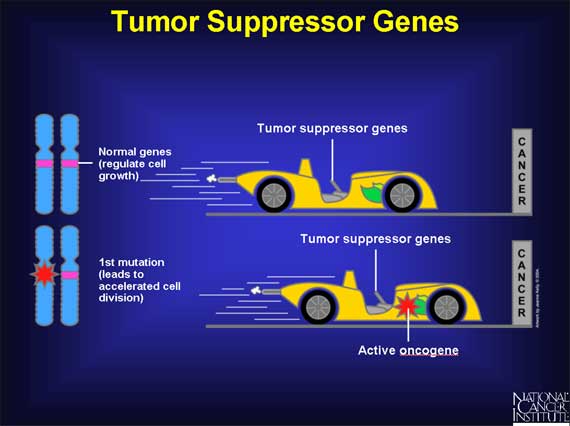|
Most cancer susceptibility genes are tumor suppressor genes. Tumor suppressor
genes are just one type of the many genes malfunctioning in cancer. These
genes, under normal circumstances, suppress cell growth. Some do so by encoding
transcription factors for other genes needed to slow growth. For example, the
protein product of the suppressor gene TP53 is called p53 protein. It binds
directly to DNA and leads to the expression of genes that inhibit cell growth
or trigger cell death. Other tumor suppressor genes code for proteins that help
control the cell cycle.

< Previous | Index | Next Slide > |